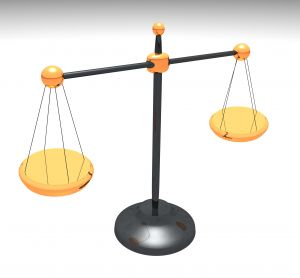 The blog, TechDirt, recently published an article titled, “Is Policing Plagiarism at A University As Counterproductive As Trying To Stop Copyright Infringement?” The article postulates that creating a learning environment based on discovering plagiarism and punishing the culprits can backfire by producing a fearful and ineffective classroom atmosphere. The author likens this to the back-and-forth battle over copyright infringement between companies and users that often leaves both sides with a bad taste in their mouth; this type of ongoing battle can stifle creativity with an ‘angry us-vs.-them world.’
The blog, TechDirt, recently published an article titled, “Is Policing Plagiarism at A University As Counterproductive As Trying To Stop Copyright Infringement?” The article postulates that creating a learning environment based on discovering plagiarism and punishing the culprits can backfire by producing a fearful and ineffective classroom atmosphere. The author likens this to the back-and-forth battle over copyright infringement between companies and users that often leaves both sides with a bad taste in their mouth; this type of ongoing battle can stifle creativity with an ‘angry us-vs.-them world.’
Menu
-
Solutions
-
Our Solutions
-
AcademicSurface potential plagiarism prior to publication with iThenticate’s expansive content database.
-
AdmissionsScreen personal essays for potential plagiarism and help ensure the highest level of integrity even before matriculation.
-
GovernmentEnsure the originality of public-facing content, from legal documents to grant applications, and reporting.
-
MedicalPrevent invalid findings dissemination, grant misconduct, and improper medical practices.
-
PublishingProtect your journal’s reputation by publishing only the highest quality articles.
-
-
Resources
-
Our Resources
-
FAQFind the answers to the commonly asked questions about how iThenticate works.
-
Content DatabaseComprehensive coverage you can trust across the internet, scholarly articles, and industry papers.
-
GuidanceSearch our comprehensive site for the launch, integration and usage information.
-
-
Pricing
-
Login
-
Buy Credits
 The practice of commissioning an anonymous writer, or ghostwriter, to do one’s writing has been employed for a number of famous books and papers in the past, including official presidential biographies. Examples of ghostwriting exist in almost every field – from politics to literature to scientific research. Ghostwriting is an industry of its own; thousands of people make their living every year by writing anonymously. Although ghostwriting has been historically accepted, it has been undergoing some criticism recently that it is considered a form of plagiarism.
The practice of commissioning an anonymous writer, or ghostwriter, to do one’s writing has been employed for a number of famous books and papers in the past, including official presidential biographies. Examples of ghostwriting exist in almost every field – from politics to literature to scientific research. Ghostwriting is an industry of its own; thousands of people make their living every year by writing anonymously. Although ghostwriting has been historically accepted, it has been undergoing some criticism recently that it is considered a form of plagiarism. Senator John Kerry recently made some very controversial statements when speaking on MSNBC’s “Morning Joe” segment.
Senator John Kerry recently made some very controversial statements when speaking on MSNBC’s “Morning Joe” segment. Journalism is a profession that is currently in a major state of flux. It’s not hard to see this - just take a look at any major news outlet. Turn on CNN and you’ll see more Facebook profiles and Twitter handles than you would at a social media tradeshow. Open the New York Times and everyday you’ll see an increasingly heavier push towards digital subscriptions.
Journalism is a profession that is currently in a major state of flux. It’s not hard to see this - just take a look at any major news outlet. Turn on CNN and you’ll see more Facebook profiles and Twitter handles than you would at a social media tradeshow. Open the New York Times and everyday you’ll see an increasingly heavier push towards digital subscriptions. Marc Hauser, a prominent Harvard psychology professor, recently resigned after being found guilty of scientific research misconduct. Hauser was renowned in the field of evolutionary biology, particularly in regards to his research with animal cognition and neuro-development. His ground-breaking work had previously been featured across numerous scientific publications, books, news articles and television programs.
Marc Hauser, a prominent Harvard psychology professor, recently resigned after being found guilty of scientific research misconduct. Hauser was renowned in the field of evolutionary biology, particularly in regards to his research with animal cognition and neuro-development. His ground-breaking work had previously been featured across numerous scientific publications, books, news articles and television programs. Laura Miller from Salon recently penned
Laura Miller from Salon recently penned
 The past decade has seen a scary increase in the number research paper retractions. The Journal of Medical Ethics
The past decade has seen a scary increase in the number research paper retractions. The Journal of Medical Ethics  One thing often said about rumors or slander is that once the information is leaked, it’s out permanently. In other words, even if a rumor is proven to be completely false, the information still exists in the minds of all the people who already heard it.
One thing often said about rumors or slander is that once the information is leaked, it’s out permanently. In other words, even if a rumor is proven to be completely false, the information still exists in the minds of all the people who already heard it. It might sound like some sort of league of superheroes, but not everyone is keen on the so called ‘plagiarism hunters.’
It might sound like some sort of league of superheroes, but not everyone is keen on the so called ‘plagiarism hunters.’